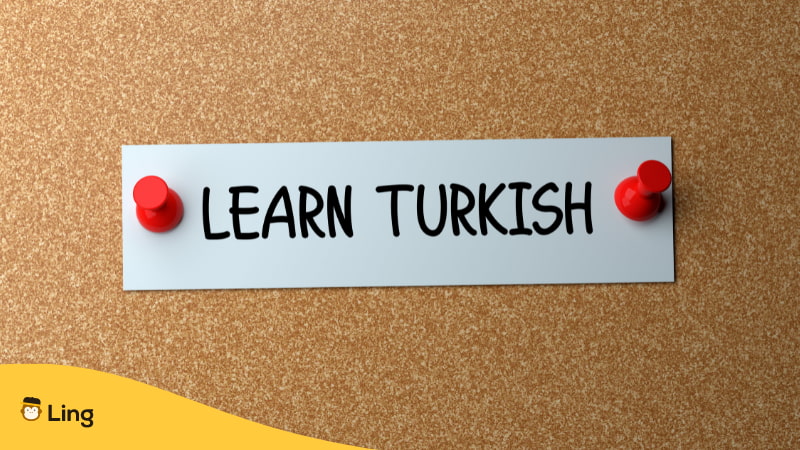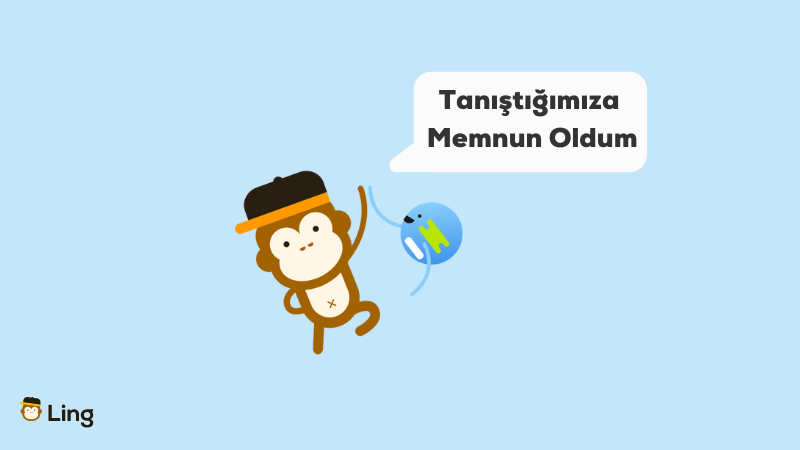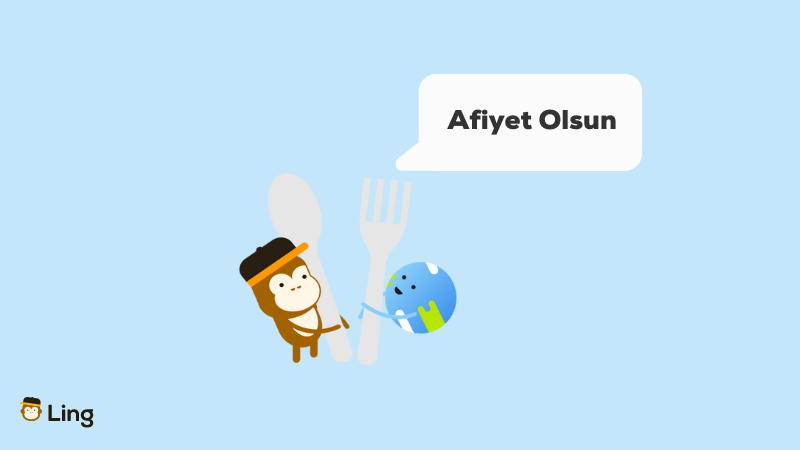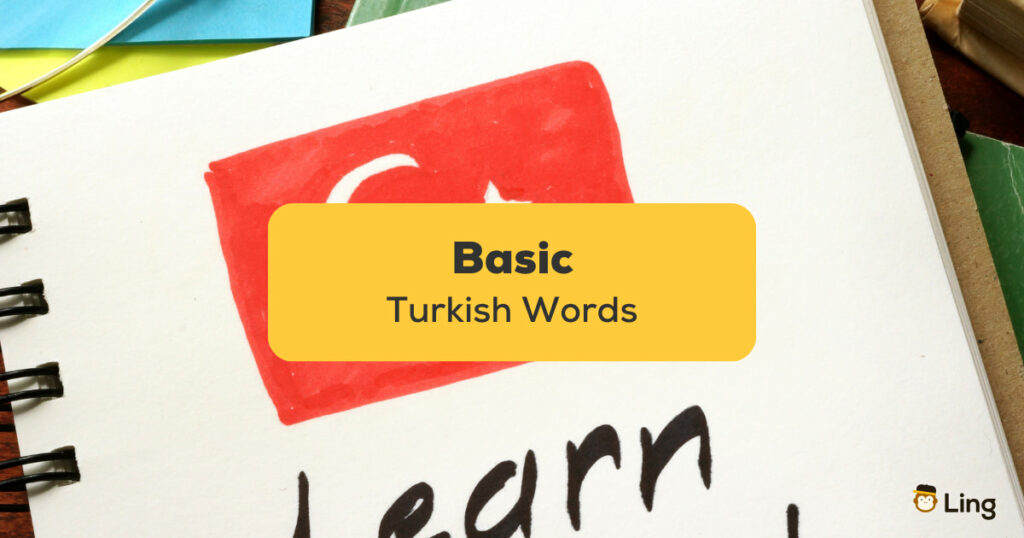Are you planning on going on vacation to the beautiful country of Turkey? If yes, you must learn some basic Turkish words and phrases to have a better travel experience. Not because Turkish people can’t speak English, but so that you can get to know the Turkish culture better and communicate with people directly!
It’s time to take that leap and learn Turkish! So, let’s get started with this quick Turkish language guide.

A Quick Introduction To The Turkish Language
Before we jump into the basic Turkish words phrases, let’s get to know the Turkish language better.
The Turkish language adopted the Latin alphabet in 1928. Up until that time, Turkish used the Arabic alphabet.
The Turkish alphabet consists of 8 vowels and 21 consonants. The vowels are A, E, I, İ, O, Ö, U, and Ü. Keep in mind that it doesn’t include the letters Q, W, and X. The sentence structure in Turkish also follows a subject-object-verb order.
Turkish is an agglutinative language. In other words, there is a root word, and you basically add a suffix at the end to form new words. As a result, you might end up with some pretty long words.
Fun Fact: The longest word in Turkish has 70 characters, and it’s spelled “muvaffakiyetsizleştiricileştiriveremeyebileceklerimizdenmişsinizcesine”
Turkish Pronunciation
Though there are some exceptions, most of the letters in the Turkish alphabet are similar to English in terms of pronunciation. Let’s look at some exceptions:
- C is always pronounced as j (ex. jar)
- Ç is pronounced as ch (ex. chat)
- Ğ is pronounced silent as k (ex. know)
- I is pronounced as e (ex. oven)
- İ is always pronounced as i (ex. bit)
- Ö is pronounced as i (ex. dirt)
- Ş is pronounced as sh (ex. she)
- Ü is pronounced as ew (ex. brew)
Once you know how to pronounce these letters, learning Turkish words will be a piece of cake!

The Most Basic Turkish Words
Here are some of the most common Turkish words for daily life. After learning these words, we’ll go on to Turkish phrases.
Evet
Evet means yes in English. You can respond with ”evet” to a simple yes/no questions in Turkish, or you can say it when you agree with someone.
Hayır
Hayır means no in English. Just say ”hayır” when you want to turn down an offer or state that something did not happen.
Remember not to say no to someone who is offering you food. Otherwise, Turkish people will feel hurt that you don’t want to share their food with them.
Tamam
Tamam means okay in English. You can say ”tamam” to accept an offer or when you’re told to do a task. This word indicates that you understand what you have to do and you are going to do it.
Merhaba
Merhaba means hello in English, and it is the most commonly used Turkish greeting. You should say ”merhaba” when you enter any kind of place in which there are other people. Otherwise, you will be considered impolite. In order to sound more casual, you can say ”selam”.

Teşekkürler
Teşekkürler means thanks in English and is the quickest way to thank someone in Turkish. If you want to sound more formal and serious, you can say ”teşekkür ederim”.
To emphasize it even more, you can say ”çok teşekkür ederim”, which means thank you very much.
Lütfen
Lütfen means please in English. You can use this word whenever you want to sound more polite. It is generally used when requesting something from a person or insisting on something.
You may even hear many children say ”lütfen” when they want their parents to buy them a toy.
Nasılsınız?
Nasılsınız means how are you in English and is generally used to ask about someone. It is also a must-have part of small talks in Turkish.
Nasılsınız (formal) can be said to someone who is older than you or senior to you, whereas nasılsın (informal) can be used for family and friends in casual conversations.
İyiyim
İyiyim means I’m fine in English. It is used as a positive answer to the previous question in Turkish.
Görüşürüz
Görüşürüz means see you in English. You can use this phrase to say goodbye to someone that you will see again. You can also say ”sonra görüşürüz” which means see you later.
Pardon
Pardon means excuse me in English. You can use this word to get the attention of someone you don’t know before asking something.
You can also use this word when you do something bad by accident. For example, if you bump into someone on the street.
Üzgünüm
Üzgünüm means I’m sorry in English. You can use this word to show your sadness and sympathy for someone.
The Most Basic Turkish Phrases
Since you’ve learned the basic Turkish words, now it’s time to learn some basic Turkish phrases. Learning these basic words and phrases will be a lifesaver if you visit Turkey, so don’t underestimate their power.
Adınız Ne?
Adınız ne means what’s your name in English. It’s a formal phrase to ask someone’s name. If you’re asking a child, you can say the informal way of ”adın ne?”.

Tanıştığımıza Memnun Oldum
Tanıştığımıza memnun oldum means nice to meet you in English. You can say this phrase after someone introduces themselves to you. You can also shorten this sentence to just ”memnun oldum”
You can say ”ben de” in return. This phrase means me too, in English.
İyi Günler
İyi günler means to have a good day in English. You’ll hear this phrase a lot from cashiers in shops and restaurants because they really want to see you off in the best way possible.
Günaydın
Günaydın means good morning in English. You can use this word when you get up in the morning and for both formal and informal situations.
İyi Geceler
İyi geceler means good night in English. You can use this phrase before going to bed or late time of night. Again, it is appropriate for both formal and informal situations.
İyi Yolculuklar
İyi yolculuklar means bon voyage in English. You can hear this phrase from every travel agency employee in Turkey. The phrase means that they’re wishing you an amazing and comfortable journey.
Rica Ederim
Rica ederim means you’re welcome in English. You can use this phrase as a response to teşekkürler.

Afiyet Olsun
The closest meaning to ”afiyet olsun” is ‘enjoy your meal’ in English. It is one of the most frequently used phrases in Turkish and is generally used by the person who cooked the meal.
Ellerinize Sağlık
There is no exact equivalent to ”ellerinize sağlık” in English, but Turkish people use this phrase to express their respect and appreciation for the person who cooked their meal.
Kolay Gelsin
Turkish people say this phrase when they see someone is busy with something or working. It has a meaning similar to wishing that their work gets easier.
Want To Learn More Turkish? Use The Ling App!
If you are interested in learning the Turkish language just from reading these basic Turkish words, then you will absolutely love the Ling app!
The Ling app is a language-learning app designed to help all learners as they venture out on their language-learning journeys. With so many engaging activities to choose from, such as writing and listening exercises, mini-games, quick quizzes, and an AI chatbot to converse with, the Ling app is an all-in-one language learning resource.
You can find everything you could ever need in this app to master all 4 language skills. Even better, you can try the app out for free today by downloading it from the App Store or Play Store.
Learn to speak Turkish, or any other language, now by using the Ling app today!



























2 Responses
Im saluka, like to learn turkish please help me
I love to learn Turkish language I try my best to learn I little bit know the basic word I try my best to enhance the pronouciation because sometimes it’s hard to pronounce it well but it’s fun to learn new things .